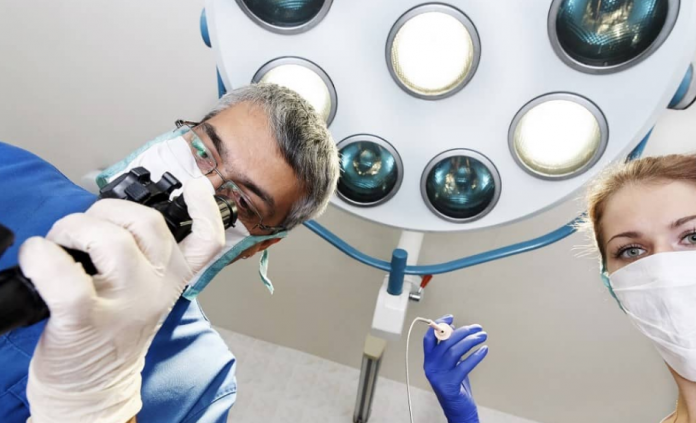Medicine has improved over time. Surgery is an old thing now. Currently endoscopic surgery or minimally invasive surgery is the most important in most cases. Simply put, it is a procedure that involves cutting a very small part of the body and performing surgery on that part. Undoubtedly, this type of surgery has completely changed the terminology of surgery in medicine. Over time, this surgery has played a very important role in the field of neurosurgery. This is because such surgery does not require the removal of large parts of the body. But it also helps doctors to treat tumors better. In addition, the patient recovers faster.
Minister Aditya in discussion
According to Aditya Mantri, a consultant and neurosurgeon at the Apollo Multispeciality Hospital in Kolkata, major surgeries performed in the past have made it easier to amputate a small part of the body. Sometimes that part doesn’t have to be cut. “Endoscopic surgeries are performed through natural holes in the human body – like the nose,” he said. In some cases, a small section of the skull may need to be cut … For example, endoscopic surgery is commonly used to perform surgery on the pituitary gland or skull.
This process is also very convenient. This allows doctors to examine the tumor thoroughly. Above all a panoramic view is available. In the past it was not possible in any way. This allows doctors to work safely, which ultimately increases the likelihood that the tumor will be removed. At the same time, this type of surgery reduces the amount of post-operative radiation therapy.
With neuro endoscopy, doctors can successfully detect deep-seated tumors in the brain using endoscopes. Through neuro navigation, which is part of the endoscope, surgeons can penetrate deep into the brain and examine the tumor thoroughly. According to Aditya Mantri, “This neuro-navigation system now allows easy access to a specific part of the brain.”
Because neuro-endoscopy provides such accuracy when removing a tumor, the patient’s postoperative side effects are also rare. In addition, the patient recovers faster.
Almost every major city in India has rapidly adopted such cutting-edge revolutionary technology. Kolkata has now become the best place for patients from East India to enjoy this state-of-the-art medical infrastructure. However, statistics show that a large portion of this large population is still ignorant of this life-saving medical procedure. There is also a lack of awareness on many issues. For example, some people are still reluctant to use new technologies, such as endoscopy, for fear of side effects. Especially in neurosurgery. Which is one of the biggest problems.
The overall outline of the use of endoscopes in neurosurgery at the Apollo Multispeciality Hospital in Kolkata has changed. According to Minister Aditya, there are many other applications of endoscopy, one of which is endoscopic third ventriculostomy (ETV). He said, “It is used in the treatment of hydrocephalus that prevents depression. Sometimes, it is also used to treat other cystic lesions of the brain. “Physicians create a cell in the brain system that communicates with the natural CSF chamber inside the brain through an endoscope.”
Apollo Multispeciality Hospital, which has every opportunity to use the endoscope in neurosurgery, has transformed the terms of hospital medicine with state-of-the-art facilities and specialist physicians. That is why Apollo is being chosen as the main destination for the speedy recovery of patients from all over the world, including India today.





